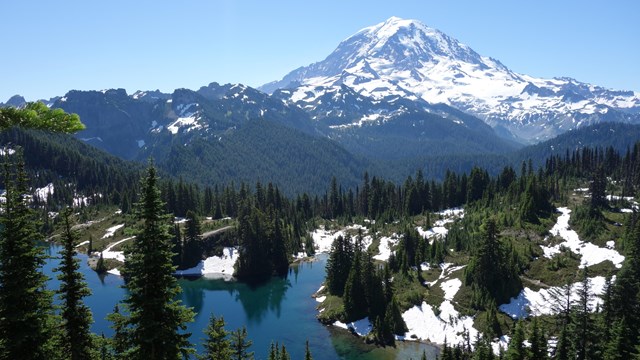
Air Quality
Air quality, which can be affected by wildfire smoke and other pollutants, is one of the environmental factors monitored in the park. 
Water Quality
Aquatic resources in the park include numerous lakes, rivers, springs, and wetlands that are critical habitat for numerous species. 
Climate Change Science
To help anticipate the effects of climate change, scientists are studying the glaciers, rivers, meadows, forests, and wildlife of the park. 
Wildland Fire
Updates and information about active wildfires affecting the park. |
Last updated: March 18, 2025
